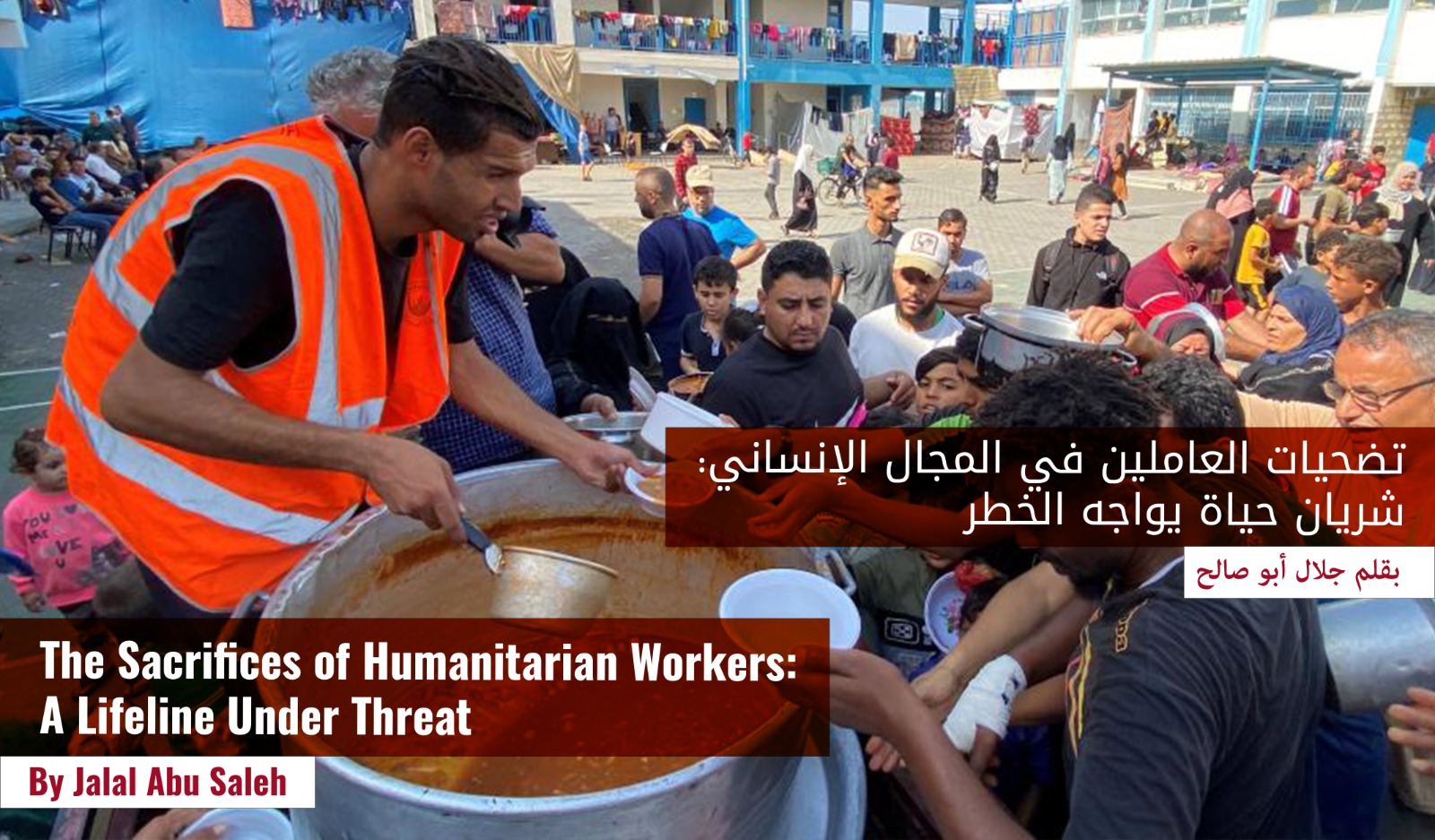By Jalal Abu Saleh
It is impossible to speak about humanitarian action in the Arab region without acknowledging the ongoing tragedies in Palestine, Sudan, and Yemen. Since October 2023, Gaza has become the deadliest place in the world for aid workers: more than 520 humanitarian staff—most of them from UNRWA—have been killed in direct Israeli attacks.
These workers were not on battlefields. They were in clinics, schools, warehouses, and even in their homes. Their deaths represent not only a grave violation of humanitarian law, but also the loss of a lifeline for hundreds of thousands of Palestinians trapped under siege.
World Humanitarian Day, marked every year on August 19 since its adoption by the UN General Assembly in 2008, honors such sacrifices and reminds the world of the duty to protect those who risk their lives to save others. The 2025 theme, “Strengthening Global Solidarity and Empowering Local Communities,” calls on the international community to support millions affected by crises while ensuring the dignity and safety of humanitarian workers.
Sudan, Yemen, and Jordan: Humanitarian Frontlines
Sudan has endured a devastating war since 2023, displacing millions inside and outside the country. Humanitarian workers face daily threats, and more than 60 have been killed while delivering aid, at a time when funding needs exceed $12 billion.
In Yemen, nearly a decade of conflict has left millions dependent on food and medical aid. Humanitarian staff contend with severe obstacles—movement restrictions, underfunding, and insecurity—yet persist because without them, survival for millions would be impossible.
Despite its limited resources, Jordan continues to play a critical role. Hosting hundreds of thousands of refugees from Palestine, Syria, Yemen, and Sudan, it has provided education, healthcare, and essential services. Local organizations and Jordanian humanitarian staff are the first line of defense, often working under extreme pressure—making regional and international support essential.
Warning Signs for 2025
The UN has warned that 2025 could be the worst year yet for humanitarian workers. Secretary-General António Guterres has described attacks on aid staff as “an assault on humanity itself.” In 2024 alone, more than 383 aid workers were killed, 308 were injured, 125 kidnapped, and 45 detained worldwide.
The Middle East and North Africa alone require $15.9 billion in humanitarian funding—34% of global needs. Globally, the UN has launched an appeal for $47 billion to assist nearly 190 million people across 72 countries.
“Humanitarian workers carry hope where despair prevails and embody humanity where inhumanity reigns,” said UN Under-Secretary-General Tom Fletcher in Geneva. “They are a lifeline for millions, but today they themselves urgently need protection”.
Risks and Sacrifices
Humanitarian workers are the first line of defense in crises and disasters. Their work is not just a job but a moral commitment. They risk their lives daily to provide food, medicine, and shelter—and often pay the ultimate price.
In Palestine, hundreds of aid workers were killed in the past year alone. In Sudan and Yemen, many lost their lives while attempting to deliver basic supplies. These sacrifices underscore the need for strong legal and international protection. Humanitarian workers do not carry weapons; they carry food, medicine, and hope. Supporting and protecting them is a moral and human obligation.
New Threats to Humanitarian Space
UN humanitarian coordinators in Palestine, Syria, Yemen, and Lebanon warn that attacks on humanitarian operations are now targeting the very foundations of international humanitarian law. These include efforts to dismantle UN agencies, impose sanctions, or cut funding from organizations that defend human dignity and justice.
Speaking about violations has itself become risky, often exploited politically, threatening the safety of operations and restricting access to civilians. The absence of accountability fuels further violations, creating a dangerous normalization of impunity that cannot be tolerated morally or justified politically.
Saving What Remains of Our Humanity
On this World Humanitarian Day, the call is renewed: respect international humanitarian law, protect humanitarian workers, and end impunity for attacks against them. Independent investigations, implementation of UN Resolution 2730 (2024), and strengthened funding are urgent priorities.
Greater support must also go to local organizations and communities, empowering them with resources, training, and a voice in humanitarian decision-making.
Humanitarian workers are not only a lifeline for millions—they are a reminder of our shared humanity. Protecting them means protecting the very values that keep humanity alive.



